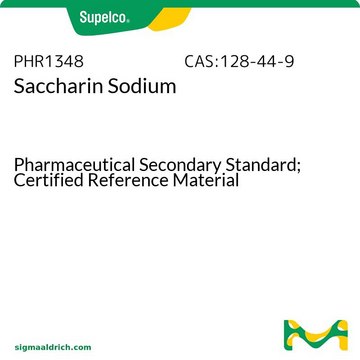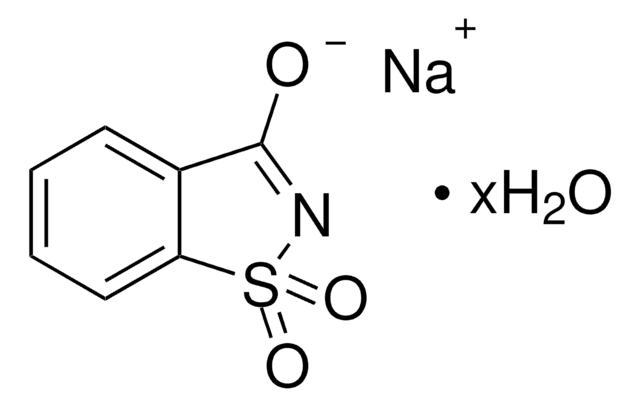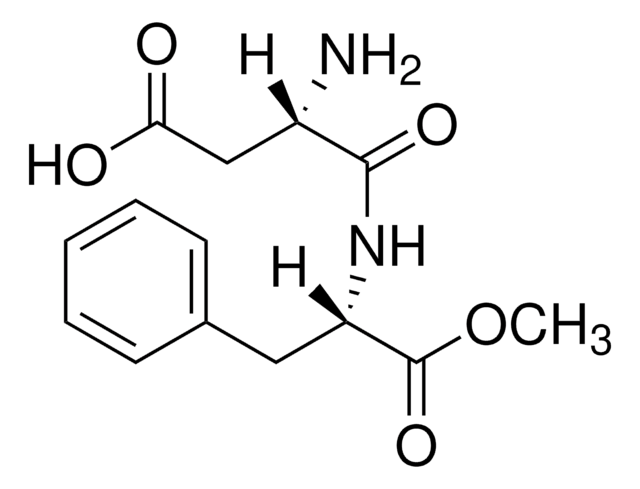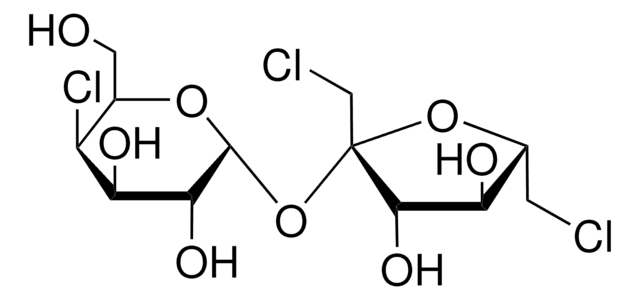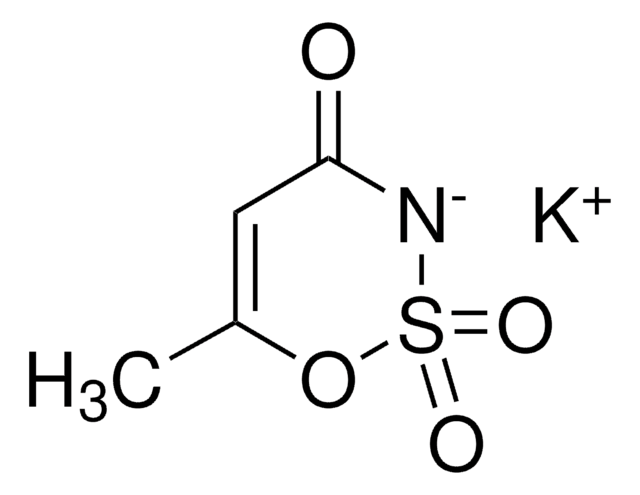1607007
USP
Saccharin
United States Pharmacopeia (USP) Reference Standard
Sinonimo/i:
2,3-Dihydroxy-1,2-benzisothiazol-3-one-1,1-dioxide, 2-Sulfobenzoic acid imide, o-Benzoic sulfimide
About This Item
Prodotti consigliati
Grado
pharmaceutical primary standard
Famiglia di API
saccharin
Produttore/marchio commerciale
USP
Punto di fusione
226-229 °C (lit.)
applicazioni
pharmaceutical (small molecule)
Formato
neat
Stringa SMILE
O=C1NS(=O)(=O)c2ccccc12
InChI
1S/C7H5NO3S/c9-7-5-3-1-2-4-6(5)12(10,11)8-7/h1-4H,(H,8,9)
CVHZOJJKTDOEJC-UHFFFAOYSA-N
Cerchi prodotti simili? Visita Guida al confronto tra prodotti
Descrizione generale
Applicazioni
- Saccharin Sodium Tablets
Azioni biochim/fisiol
Risultati analitici
Altre note
Prodotti correlati
Codice della classe di stoccaggio
11 - Combustible Solids
Classe di pericolosità dell'acqua (WGK)
WGK 2
Punto d’infiammabilità (°F)
Not applicable
Punto d’infiammabilità (°C)
Not applicable
Scegli una delle versioni più recenti:
Certificati d'analisi (COA)
Ci dispiace, ma al momento non ci sono COA disponibili online per questo prodotto.
Se ti serve aiuto, non esitare a contattarci Servizio Clienti
Possiedi già questo prodotto?
I documenti relativi ai prodotti acquistati recentemente sono disponibili nell’Archivio dei documenti.
I clienti hanno visto anche
Il team dei nostri ricercatori vanta grande esperienza in tutte le aree della ricerca quali Life Science, scienza dei materiali, sintesi chimica, cromatografia, discipline analitiche, ecc..
Contatta l'Assistenza Tecnica.